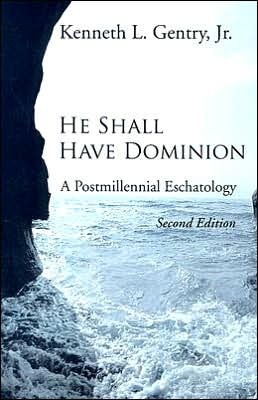What do you think?
Rate this book


619 pages, Paperback
First published January 1, 2009
Eschatology is a deeply rooted and intricately involved aspect of Christian theology. It should not be approached in a naïve manner or be given superficial treatment. Consequently, no single passage may be expected to present an entire eschatological system [...] Eschatology is woven into the whole fabric of Scripture as the story within. (Gentry, Pg.497)
The postmillennial hope is in the gospel of God's sovereign redemptive grace through the Lord Jesus Christ. The postmillennialist does not long for just any old worldly peace or for mere materialistic prosperity, devoid of evangelistic success, Christian discipleship, biblical righteousness, and true holiness. Such an empty peace would not serve as a sign of kingdom victory, for it is a gospel kingdom that we promote, which entails the widespread influence of the gospel.